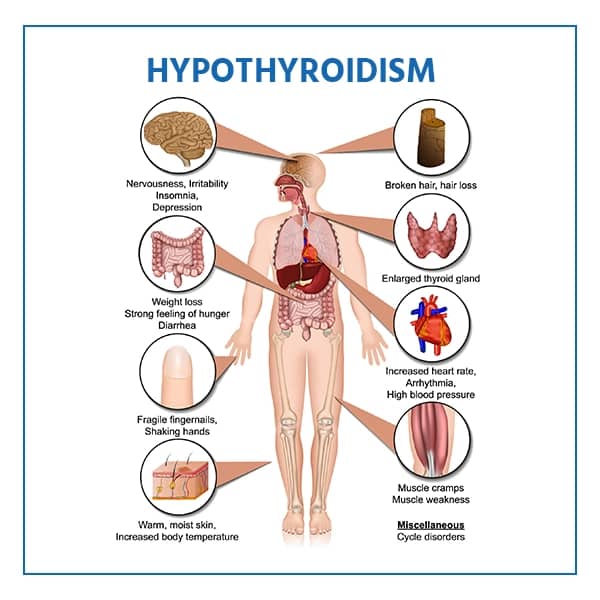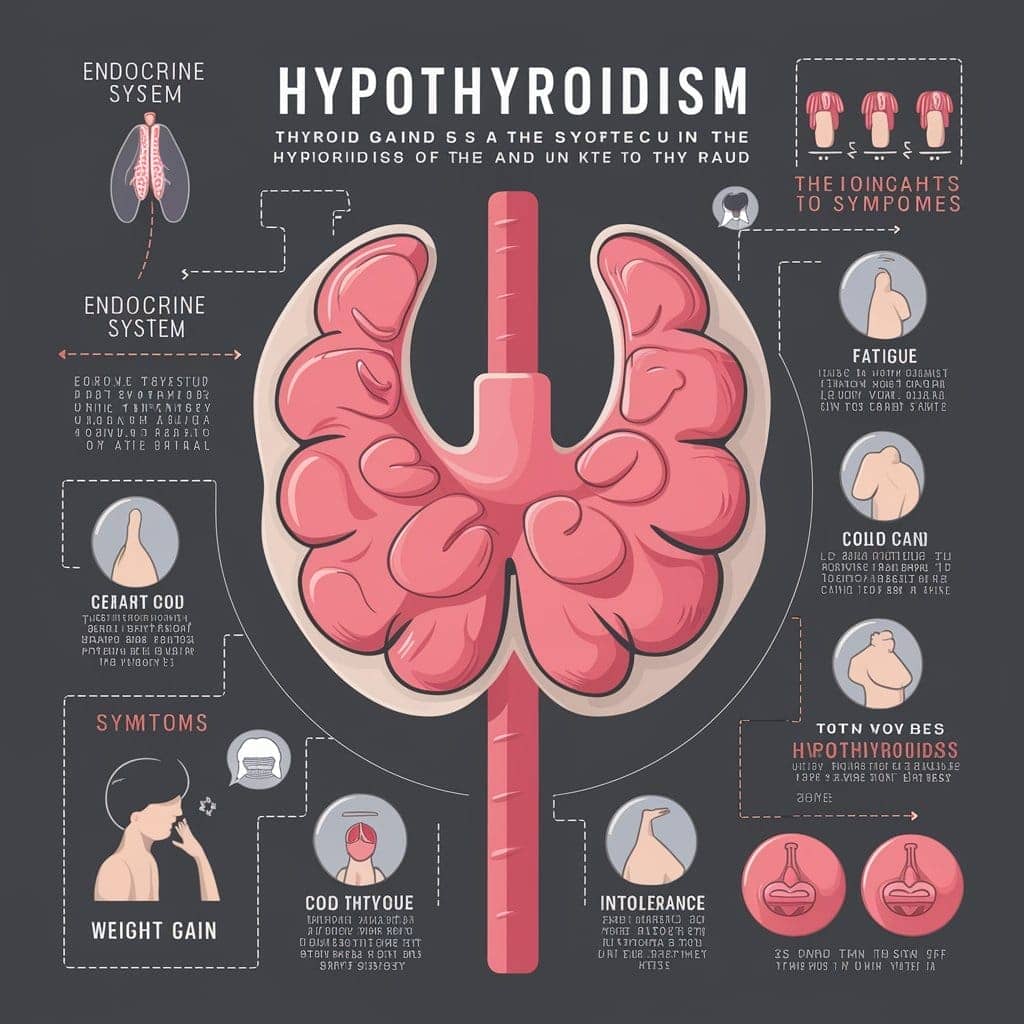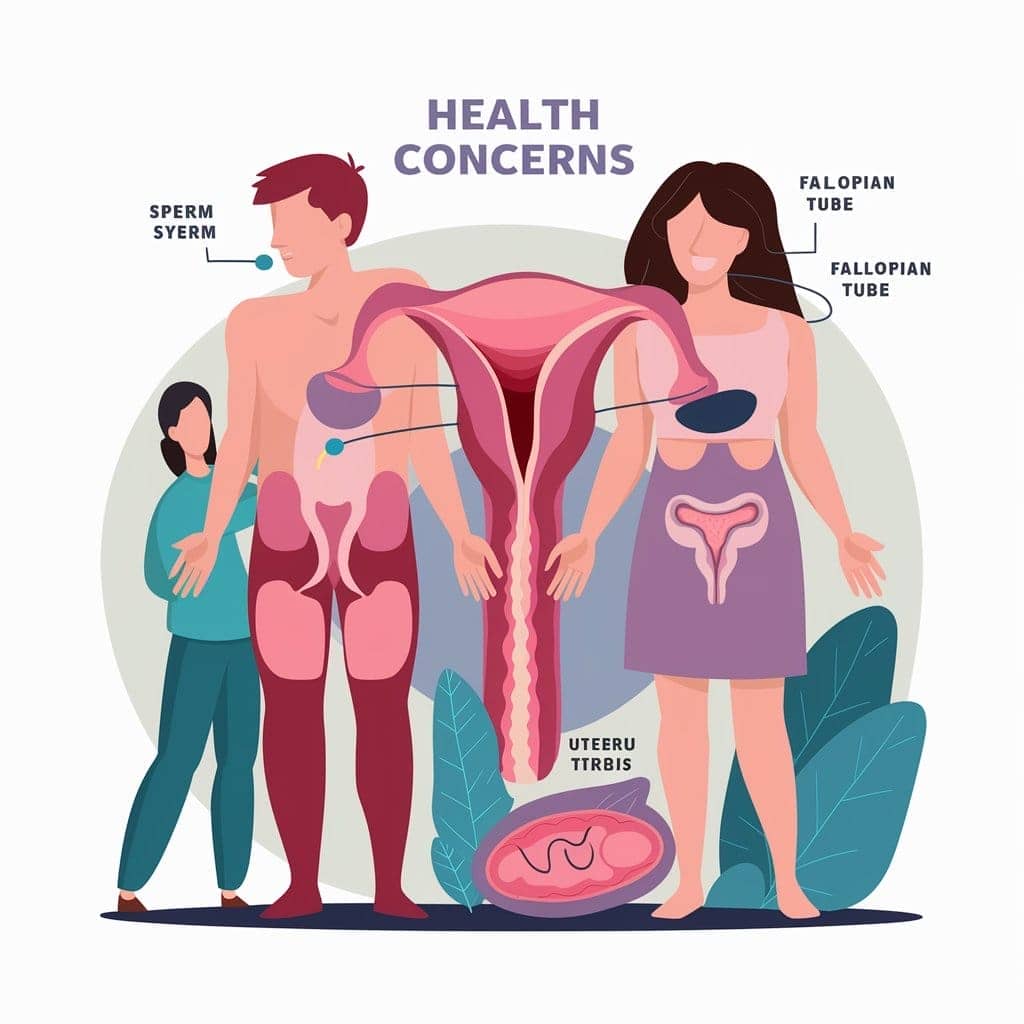A Natural Approach to Thyroid Treatment for Women: Discover Medicine-Free Solutions for Optimal Health

For women, thyroid treatment without medication involves lifestyle changes and natural remedies. However, women are more likely to have underactive thyroidism, especially after menopause. Symptoms include fatigue, constipation, weight gain, and low sexual interest. Hyperthyroidism, an overactive thyroid condition, though far less common, may affect women and provoke palpitations, vision changes, and weight loss.
-
Dietary Changes:
A balanced diet that includes foods rich in iodine, selenium, and zinc can help support thyroid function. Iodine is one of the elements required in generating thyroid hormones, and selenium is used in converting T4 to T3. The role of zinc in the production of thyroid hormones is also crucial. Some examples of foods rich in these nutrients include:
- Iodine: seaweed, seafood, dairy products, and iodized salt
- Selenium: Brazil nuts, fish, turkey, and whole grains
- Zinc: oysters, beef, chicken, and pumpkin seeds
-
Supplements:
Certain supplements can help support thyroid function, such as:
- Selenium: As it was mentioned previously, selenium is significant for the conversion of T4 to T3. Taking a selenium supplement is important for optimizing the functioning of the thyroid.
- Zinc: Zinc deficiency may lead to hypothyroidism, so taking a zinc supplement effectively supports thyroid function.
- Omega-3 fatty acids: Omega-3 fatty acids have anti-inflammatory properties and are thereby assumed to have a positive effect on reducing inflammation in the thyroid gland.
- Vitamin D: Taking a vitamin D supplement may support thyroid function, as vitamin D deficiency has been associated with thyroid problems.
-
Avoid Soy and Cruciferous Vegetables:
Soy and broccoli or cauliflower, which belong to the group of cruciferous vegetables, are inhibitors of thyroid functions. Isoflavones from soy interfere with thyroid activity, while cruciferous vegetables have compounds that affect the synthesis of thyroid hormones. These are supposed to be avoided or restricted to help relieve thyroid problems.
-
Reduce Stress:
Stress can also make thyroid function worse, so finding ways to manage stress can help alleviate thyroid problems. Techniques such as meditation, yoga, and deep breathing can help reduce stress levels.
-
Exercise Regularly:
Regular exercise will help improve thyroid function. Try at least 30 minutes of moderate-intensity exercise daily.
-
Get Enough Sleep:
Getting enough sleep is vital for health overall, including thyroid function. Keep a record of 7-8 hours a day.
-
Avoid endocrine disruptors:
Endocrine disruptors, for example, BPA and phthalates, can disturb thyroid action. Protect yourself by opting for non-toxic household cleaners, avoiding the use of plastic containers, and selecting hormone-free personal care products.
-
Maintain a healthy weight:
Sticking to a healthy weight is going to greatly help with thyroid problems. Excess weight is causing strain on the thyroid gland, leading to the condition of hypothyroidism.
-
Limit caffeine and alcohol.
Both caffeine and alcohol will interfere with thyroid function. Limiting or avoiding these substances can alleviate thyroid problems.
-
Consider Natural Desiccated Thyroid:
The natural desiccated thyroid supplement is a thyroid supplement comprising natural thyroid hormones. It can help alleviate thyroid problems, but you need to consult your healthcare professional before taking this supplement.
Thyroid Disorders in Women
Thyroid disorders affect the health and quality of life of women. They form a common disorder occurring in women, with one out of eight women reporting at least one thyroid disorder throughout their lives. Thyroid problems are more often induced by autoimmune reactions, which are more prevalent in females.
Deteriorating functioning abilities make women more prone to developing thyroid dysfunction in contrast with men. Women have less natural iodine to spare for any gland dysfunction, hence giving a partial explanation for the prevalence of thyroid dysfunction.
Common Types of Thyroid Disorders
- Hypothyroidism (underactive thyroid): The thyroid doesn’t produce enough hormones, slowing down your metabolism.
- Hyperthyroidism (overactive thyroid): The thyroid produces too much hormone, causing your metabolism to speed up.
- Thyroiditis: inflammation of the thyroid gland, which can be temporary or lead to longer-term dysfunction.
- Thyroid Nodules: Growths on the thyroid gland, most often benign but occasionally cancerous.
How are thyroid disorders diagnosed in women?
The most commonly diagnosed thyroid disorders in women involve a medical history evaluation, physical examination, and laboratory tests.
This process normally entails several steps:
-
Medical History: The healthcare provider will inquire about your symptoms, your family history of thyroid disorders, and any other medical conditions that may be relevant. This information is important for identifying potential risk factors and making an informed diagnosis.
-
Physical Examination: A physical examination by a healthcare provider may be done to look for any outward indications that something might be wrong with your thyroid gland. They will feel your neck with the goal of ascertaining the size and form of your thyroid gland, in addition to any nodules or swelling that may be present.
-
Thyroid Function Tests: Blood tests are essential for diagnosing thyroid disorders. The most common tests include:
-
Thyroid-stimulating hormone (TSH) test: This test is aimed at measuring the level of TSH (thyroid-stimulating hormone), a hormone produced by the pituitary gland, which in turn stimulates the thyroid gland. Elevated or decreased levels indicate an overactive or underactive thyroid.
-
Free thyroxine (FT4) test: This test looks at the amount of free thyroxine (FT4), a hormone manufactured by the thyroid gland. Levels of thyroxine can aid in determining how properly the thyroid is working.
-
Triiodothyronine (T3) test: In some cases, a T3 test may be performed to determine the level of the triiodothyronine hormone, another measurement of thyroid function. It is normally associated with triiodothyronine.
-
-
Additional Tests: Depending on the results of the initial testing and clinical suspicion, further diagnostic studies may be ordered. Such studies may include the examination of thyroid antibodies, ultrasound imaging of the thyroid gland, or a fine-needle aspiration biopsy.
Conclusion
In conclusion, while some lifestyle changes and natural remedies may offer a minimal supportive benefit for thyroid health, such changes cannot replace prescribed medical treatment in cases of a diagnosed thyroid disorder. Consuming a balanced diet, stress management, and targeted supplements can also be good, though please consult your doctor before making big changes. If you have hypothyroidism or hyperthyroidism, it is essential to work with your doctor to receive proper medication and monitoring for the best possible health outcomes.






